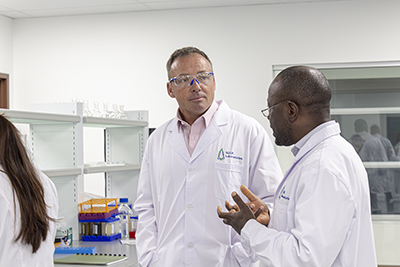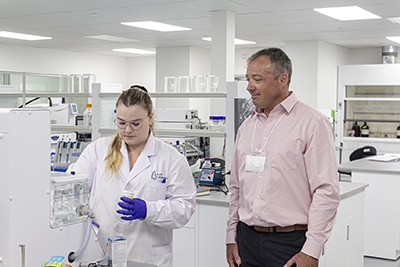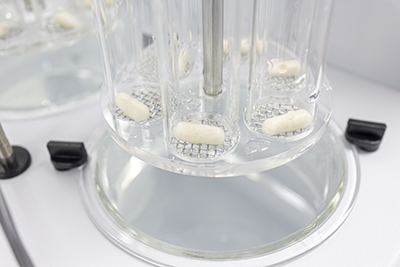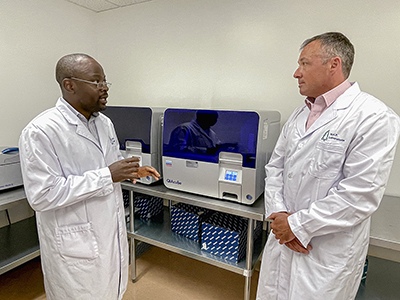Inside an ISO 17025–Accredited Laboratory: An ND’s Perspective on Testing
As a naturopathic doctor, I often hear patients ask: “How can I trust the supplements I take? What does third-party testing really mean?” These are valid questions, given the overwhelming number of products on the market and the plethora of brands offering them. Whether it’s companies claiming that they are self-certified, that they adhere to Good Manufacturing Practices, or that they use certificates of analysis from their Chinese suppliers to support the purity of their products, there are horror stories when it comes to the varying standards companies adhere to.
Recently, I had the privilege of touring N.H.P. Laboratories, an ISO 17025–accredited facility. What I witnessed left a lasting impression: A level of rigour, precision, and care that sets a high benchmark for the natural health industry.

Behind the Scenes at N.H.P. Laboratories
Established in 2005, N.H.P. Laboratories has grown into a powerhouse of scientific excellence, staffed by a team of globally recruited experts and equipped with cutting-edge technology. Their commitment to excellence was palpable in every corner of the laboratory. From the near-infrared spectroscope to the gas chromatograph/mass spectrometer, each piece of equipment plays a critical role in testing for identity, purity, potency, and delivery in order to ensure the effectiveness and safety of the products being assessed.
Why an ISO Accreditation Matters
ISO 17025 accreditation is the gold standard for laboratory testing worldwide, signifying meticulous adherence to protocols. This reassured me as a practitioner who frequently discusses the importance of quality with patients. Certified testing methods conducted in the laboratory are subjected to annual audits by an ISO accreditation body, ensuring consistency and excellence.

Testing That Inspires Confidence
During my tour of the laboratory, I learned about the comprehensive nature of their testing procedures. For example:
- Identity Verification: Using near-infrared spectroscope technology, the laboratory can differentiate between species of botanicals, ensuring patients receive the exact therapeutic compounds they need.
- Non‑GMO Certification: A genetic test used to detect DNA sequences belonging to genetically modified organisms.
- Purity Analysis: Contaminants like heavy metals and pesticides are identified with remarkable precision, down to parts per trillion.
- Potency Confirmation: Advanced tools like the ultraperformance liquid chromatograph/mass spectrometer quantify active compounds in extracts, ensuring accurate label claims.

Delivery Assurance: Equipment simulating gastric conditions test capsules for their ability to release contents where they are most effective in the body. This is particularly important to assess the disintegration and delivery of enteric-coated capsules used to protect probiotics from the harmful acid found in our stomach.

The Value for Patients
As I observed the scientists’ methodical work, I felt a profound sense of reassurance. This is not just about meeting regulatory standards—it’s about exceeding them. When companies use ISO 17025–accredited laboratories to test products, each step ensures patients like mine can trust they are getting safe, effective products. Whether it’s detecting genetically modified organisms with PCR testing or validating the efficacy of enteric-coated probiotics, every detail is scrutinized.

Dr. Ludovic Brunel, ND
Dr. Brunel has 15+ years of experience as a naturopathic doctor and practices in Calgary. His approach has always been to improve health outcomes by relying on the best research available.
setonwellness.com

